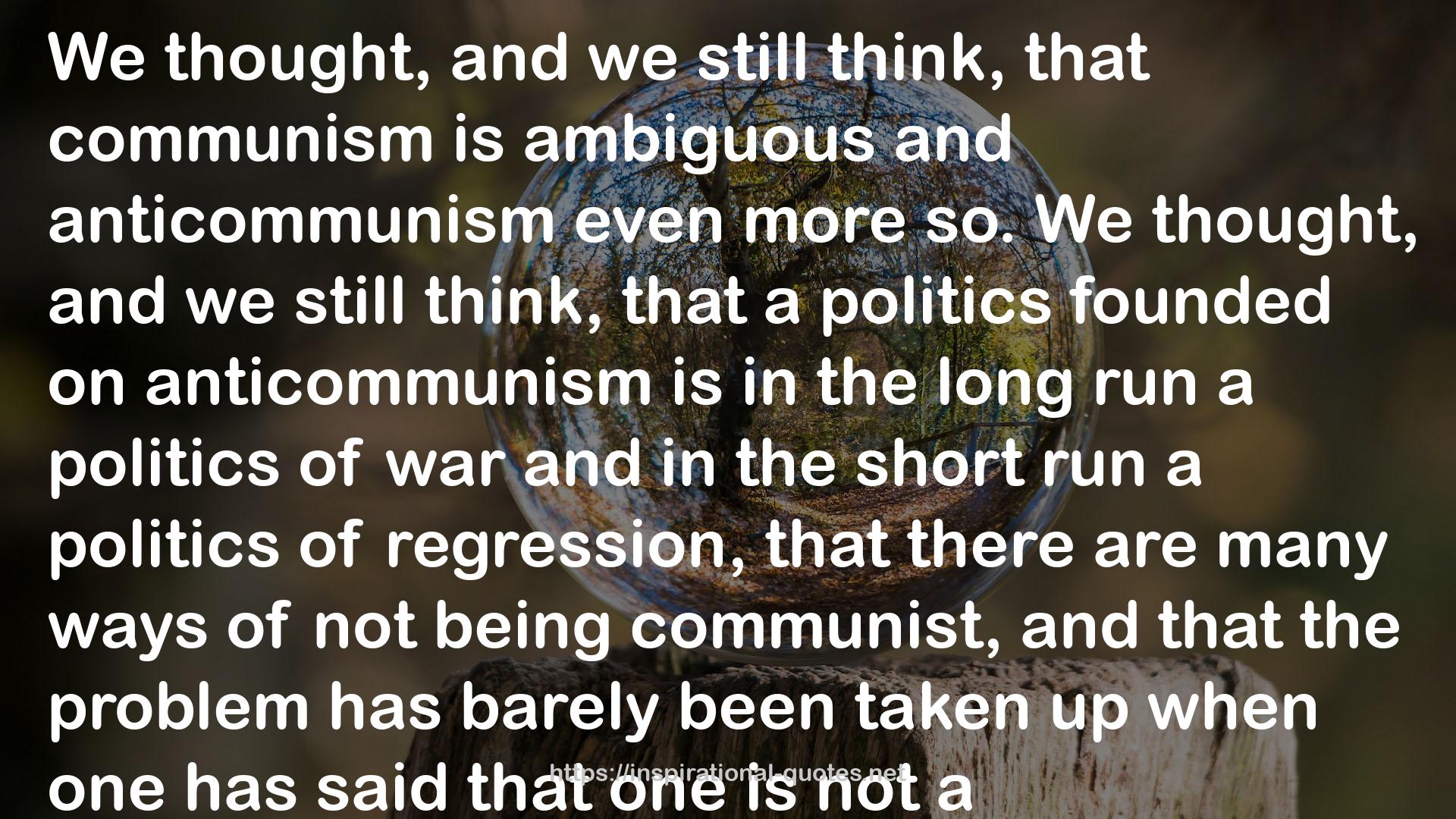" We thought, and we still think, that communism is ambiguous and anticommunism even more so. We thought, and we still think, that a politics founded
on anticommunism is in the long run a politics of war and in the short run a politics of regression, that there are many ways of not being communist, and that the problem has barely been taken up when one has said that one is not a communist...To say, as we
did, that Marxism remains true as a critique or negation without being true as an action or positively was to place ourselves outside history, and particularly outside Marxism, was to justify it
for reasons which are not its own, and, finally, was to organize equivocalness. In history, Marxist critique and Marxist action are a single movement. Not that the critique of the present derives as a corollary from perspectives of the future--Marxism is not a utopia--but because, on the contrary, communist action is in principle only the critique continued, carried to its final consequences, and because, finally, revolution is the critique in power. If one verifies that it does not keep the promises of the critique, one cannot conclude from that: let us keep the critique and forget the action. There must be something in the critique itself that germinates the defects in the action. We found this ferment in the Marxist idea of a critique historically embodied, of a class which is the suppression of itself, which, in its representatives, results in the conviction of being the universal in action, in the right to assert oneself without restriction, and in unverifiable violence...It is therefore quite impossible to cut communism in two, to say that it is right in what it negates and wrong in what it asserts: for its way of asserting is already concretely present in its way of negating; in its critique of capitalism there is already, as we have said, not a utopian representation of the future, but at least the absolute of a negation, or negation
realized, the classless society called for by history. However things may appear from this perspective, the defects of capitalism remain defects; but the critique which denounces them must be freed from any compromise with an absolute of the negation
which, in the long run, is germinating new oppressions...This Marxism which remains true whatever it does, which does without proofs and verifications, is not a philosophy of history--it is Kant in disguise, and it is Kant again that we ultimately find in the concept of revolution as absolute action...We would be happy if we could inspire a few--or many--to bear their freedom, not to exchange it at a loss; for it is not only their own thing, their secret, their pleasure, their salvation
--it involves everyone else. "
― Maurice Merleau-Ponty , Adventures of the Dialectic
